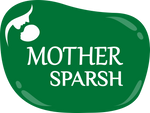
4 Natural Ways to Increase Your Breast Milk Supply
Table of Contents
Mothers! Are you struggling with a low breast milk supply? Have you tried everything and are still feeling anxious? Don't worry. We’ve got you covered. Breastfeeding can be tough, but it's worth it for your little one. The good news is that there are natural ways to boost breast milk production. You don’t need fancy supplements or gadgets—just simple, natural tricks you can use today.
Whether you're exclusively pumping or nursing around the clock, these tips will help you fill those bottles and keep your baby well-fed. Ready to give your little one extra motherly nutrition? Then, let's explore these game-changing ways to increase your breast milk supply.
The Importance of Breastfeeding and Boosting Milk Supply
Nutritional Powerhouse for Your Baby
Breast milk is nature's perfect food for your little one. It's packed with essential vitamins, proteins, and fats crucial for your baby's growth and development. Breastfeeding lowers the risk of illnesses, like respiratory infections, ear infections, and childhood obesity. By focusing on increasing breast milk supply, you're giving your baby the best possible start in life.
Health Benefits for Mom and Baby
Breastfeeding isn't just great for your baby, it's also beneficial even for a mother’s body! It can lower your risk of breast and ovarian cancers, type 2 diabetes, and cardiovascular disease. For your little one, breast milk provides unparalleled immune system support. Breastfeeding also protects against common childhood infections and serious illnesses. These incredible benefits make mastering breastfeeding tips all the more important.
Bonding Through Breastfeeding
Beyond nutrition, breastfeeding creates a unique bond between you and your baby. This skin-to-skin contact releases oxytocin, also called the "love hormone." This hormone promotes emotional security and reduces stress for both you and your little one. It's a beautiful way to connect while providing the best nourishment possible.
Remember, every drop counts! When storing pumped breast milk for future feeds, ensure you're using proper techniques to maintain its quality for your baby.
Tips for Storing Pumped Breast Milk:
- Use Clean Containers: Store milk in BPA-free bottles or breast milk storage bags.
- Label and Date: Always label your containers with the date and time of pumping.
- Refrigeration: Freshly pumped milk can be stored in the refrigerator for up to 4 days. For longer storage, freeze it.
- Thawing: When thawing frozen milk, do so in the refrigerator or by placing the container in warm water. Avoid microwaving, as it can create hot spots.
By following these tips, you can ensure your milk remains safe and nutritious for your baby, enhancing the bonding experience even more.
4 Tips for Increasing Your Breast Milk Supply Naturally
Boosting your breast milk production doesn't necessarily require medication or supplements. Here are some natural ways to increase your supply and enhance your breastfeeding experience.
1. Nurse Frequently and Efficiently
The key to increasing breast milk supply is to nurse often and effectively. Allow your baby to feed on demand, stimulating milk production through hormonal responses. Ensure a proper latch and encourage your baby to finish nursing from each breast completely. Consider alternating sides during each session to maximize stimulation.
2. Pump Between Feedings
To further boost your supply, try pumping between nursing sessions. This extra stimulation can encourage your body to produce more milk. Aim to pump immediately after feedings during the day and once or twice at night for optimal results.
3. Stay Hydrated and Well-Nourished
Maintaining a balanced diet and staying hydrated are crucial for milk production. Drink plenty of water and add an extra 300-500 calories to your daily intake to support your body's needs. Consider incorporating foods that boost milk supply, such as oats, fenugreek, and garlic into your meals.
4. Relax and Bond with Your Baby
Stress can negatively impact milk production so indulge in self-care and put your mind at ease. Bonding with your little one through skin-to-skin contact not only promotes connection but also triggers your let-down reflex, making breastfeeding more efficient and enjoyable for both you and your baby.
Storing and Freezing Breast Milk to Feed Your Baby

There are times when your milk production may not align with your baby’s hunger routine. This discrepancy can lead to mental pressure and impact milk your milk supply, so having stored breast milk as a backup can ease your anxiety and make life easier.
Best Practices for Storing Pumped Breast Milk
Storing pumped breast milk requires proper techniques to maintain its quality and safety. According to the CDC (Centers for Disease Control and Prevention), breast milk can be safely stored in a standard freezer for up to 6 months, and up to 12 months in a deep freezer. However, for optimal nutritional value, it’s best to use it within 6 months.
Choosing the Right Storage Containers
When storing breast milk in the freezer, consider using storage bags designed for this purpose. These bags protect your liquid gold and simplify the thawing process. Store milk in small portions (2-4 ounces) to minimise waste and make thawing easier.
Thawing and Using Stored Milk
When it's time to feed your baby, thaw frozen milk safely by placing the container in the refrigerator overnight or in warm water. Never use a microwave as it can destroy nutrients and create hot spots. Thawed milk should be used within 24 hours. By following these stored pumped breast milk guidelines, you'll ensure your baby always has access to your nutritious breast milk, even when you aren’t available for direct breastfeeding.
Tips to Remember
- Every mom and baby is different, so be patient and find what works best for you.
- Stay relaxed, hydrated, and well-nourished—your body is doing amazing things!
- Your body is doing amazing things! If you're still struggling, don't hesitate to consult your doctor for personalised advice.
You've got this, mama! Keep up the great work nourishing your baby. Before you know it, you'll become a breastfeeding expert. So snuggle your sweet pumpkin and enjoy those precious bonding moments with uninterrupted feeding sessions.
FAQs
Que. How can I increase my breast milk naturally fast?
Ans. To increase your breast milk supply naturally and quickly, consider using the following strategies:
- Nurse Frequently: Feed your baby on demand to stimulate milk production.
- Pump Between Feedings: Pumping immediately after nursing can enhance stimulation and increase supply.
- Stay Relaxed: Stress can negatively affect milk production, so engage in bonding activities with your baby.
- Eat Well: Incorporate foods that boost milk supply, such as oats, fenugreek, and garlic.
Que. How often should I breastfeed my newborn?
Ans. Newborns typically need to breastfeed 8 to 12 times per day. Feeding on demand is essential; it helps regulate your milk supply and ensures your baby gets enough nutrition.
Que. How to increase pumping milk supply?
Ans. To enhance your pumping milk supply follow the suggestions below:
- Pump After Feeding: This additional stimulation encourages more milk production.
- Use a Quality Pump: Ensure that your pump effectively mimics a baby's suckling.
- Maintain a Routine: Pump at consistent times to establish a rhythm for your body.
- Stay Hydrated and Nourished: Adequate hydration and nutrition support overall milk production.
Que. What should I eat to increase breast milk supply?
Ans. A balanced diet rich in specific foods can help increase breast milk supply. Consider including:
- Oats
- Fenugreek
- Garlic
Additionally, aim for an extra 300-500 calories per day to support lactation.
Que. Will drinking more water increase breast milk?
Ans. Yes, staying hydrated is crucial for maintaining an adequate milk supply. Drinking more water can help ensure that your body has the necessary fluids to produce breast milk effectively.
Que. How long can I store pumped breast milk?
Ans. Pumped breast milk can be stored safely for:
- Up to 6 months in a standard freezer.
- Up to 12 months in a deep freezer.
For optimal nutritional value, it's best to use it within the first 6 months. Always store in small portions and thaw safely before use.





